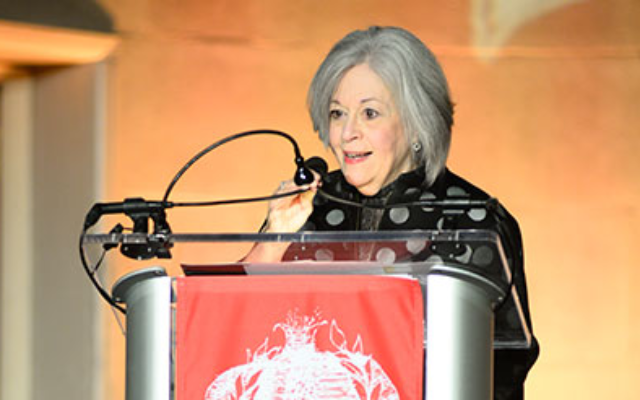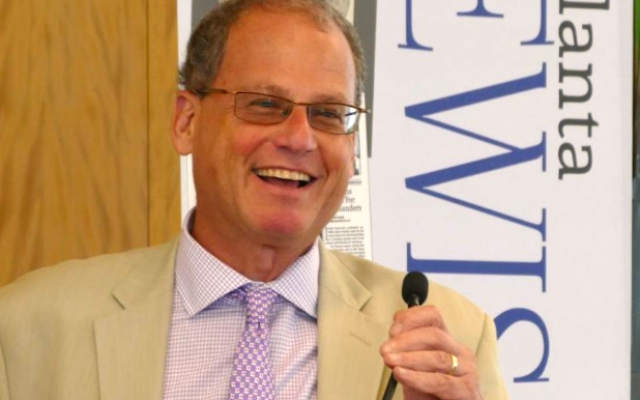Jewish Day Schools Struggle to Survive
High tuition costs in an uncertain economy among challenges threatening future.

As Atlanta’s Jewish day schools work through the last full month before they reopen for the new school year, there is a newfound sense of urgency and crisis in their planning.
Cheryl Finkel, who for 20 years was head of The Epstein School in Atlanta, is now a well-respected leadership consultant to about a dozen top educators in Jewish day schools around the country. Few heads of school have taken a break this summer and they are finding their jobs “very, very challenging,” she said.
“It’s been hard to commit to hiring teachers and staff without knowing what the numbers are. So everybody’s juggling. There’s a lot of anxiety in that juggle.”
Finkel said school leaders are finding it difficult to determine what their new year, when it finally arrives, will look like.

“They are basically talking to everyone 24 hours. Their days don’t end. They are up from early morning till late at night. They’re in touch with board leaders, with the community, with other heads of school. They’re talking with their faculty and with their finance people. All of them pretty much have been on the edge in terms of who will actually be coming this fall to their school.”
With America facing what may be its greatest economic challenge since the Great Depression in the 1930s, many families are taking a long, hard look at whether they can afford annual tuition that can approach $30,000 per child.
Daniel Libenson heads the Institute for the Next Jewish Future, which has been developing new web-based tools to further Jewish education among both children and adults. He’s a former Hillel director who did not chose a day school education for either of his two teenagers. “I think that there’s just fewer and fewer parents who imagine the benefits of day school outweighing the cost. For many progressive American Jews there is value in the idea that we live in a diverse society with many different kinds of people. To have their child spend the whole day with only Jews is increasingly a hard decision to make.”
Since 2003, the enrollment in day schools not funded by ultra-Orthodox Jews has declined, according to the AVI CHAI Foundation’s “A Census of Jewish Day Schools in the United States.” Some schools have still not fully covered from the financial crisis of 2008 and 2009.
In 2016, for instance, two leading day schools here, Yeshiva Atlanta and Greenfield Hebrew Academy, were forced to merge.
Emory professor Michael Berger, who is also a rabbi, took a leave of absence from the Jewish Studies faculty from 2004 to 2006 to become the head of Yeshiva Atlanta. He served on its board until 2013. Berger knows firsthand the many pressures that Jewish day schools face.
“I think most day schools are in a bind. As mission-driven institutions, they each need to figure out their particular mission and work on doing it very well, ‘vertical excellence.’ On the other hand, to attract enough students, they realize that the market demands a wide variety of services at a high level, which they must offer as well, ‘horizontal excellence.’ That’s a real, practical concern, which I don’t want to minimize.”
Not only do Jewish day schools compete with public education and with each other for students, but increasingly they face competition from private schools that have reached out to the Jewish community.

Pace Academy in Buckhead kicked off a $32 million fundraising campaign in 2012 with a major gift from the Blank Family Foundation. The foundation, which has been a major philanthropic source for many projects in the Atlanta Jewish community, largely underwrote the construction of the 75,000-square-foot Arthur M. Blank Family Upper School, which opened in 2014.
Today, the question of the survival of Jewish day schools is a major concern. Prizmah, the national Jewish day school organization, recently surveyed 110 heads of school. The vast majority, 90 percent, expected a significant rise in student aid requests this year. Of those surveyed, two-thirds expected budget cuts.
Some schools that face the question of long-term survival welcomed the recent decision by the Supreme Court that religious schools are entitled to the same support states give to private education.

In a statement supporting the decision June 30, Allen Fagin, the executive vice president of the Orthodox Union, underlined the work that the group has done over the past decade. The Orthodox Union claims to have raised over $515 million in government aid for Jewish education and other religious initiatives in the Jewish community.
“Today’s strong ruling from the Supreme Court solidifies the legal bases for these programs and bolsters their long-term benefits for the Jewish community and other faith communities.”
Finkel is board chair of The Covenant Foundation, working with a broad cross section of the Jewish education community. She believes that the coming year could be crucial. The broad-based public support for Jewish day schools not only ensures the educational role Jewish day school play, but what she calls these “crown jewels” strengthen our sense of community in these difficult times. “Day schools provide very powerful connections, not just for the children, but also for the families. The school communities are doing very, very well in holding the entire community together.”



comments